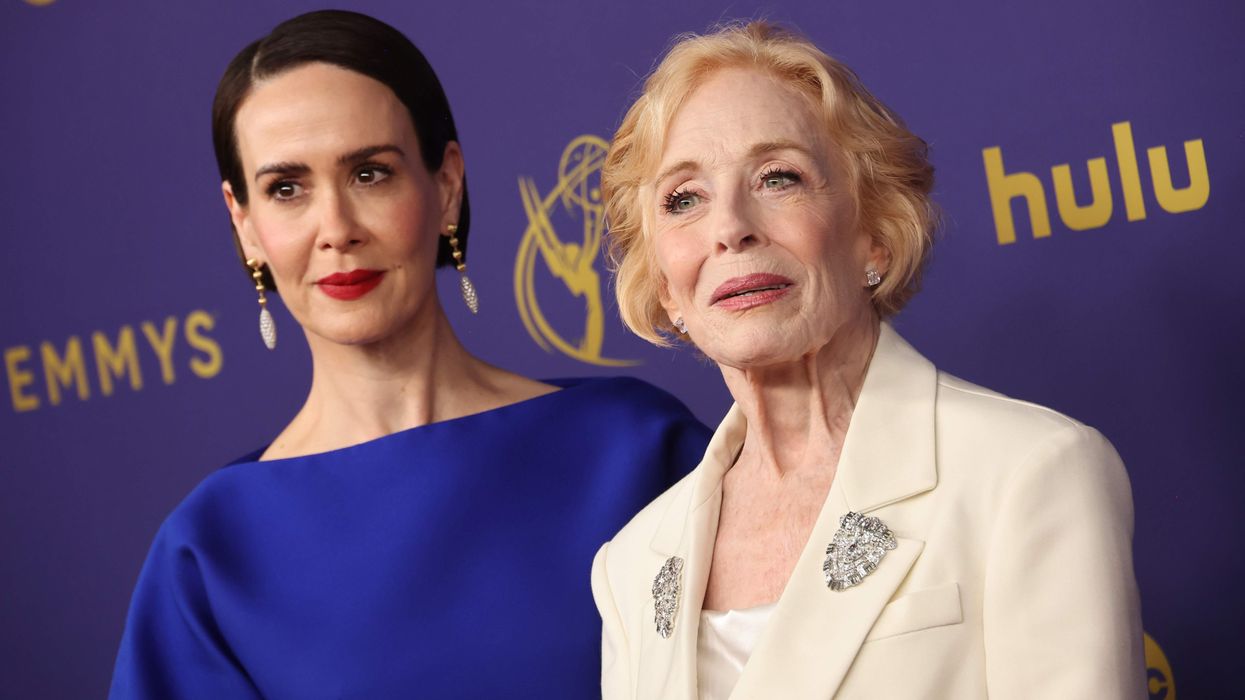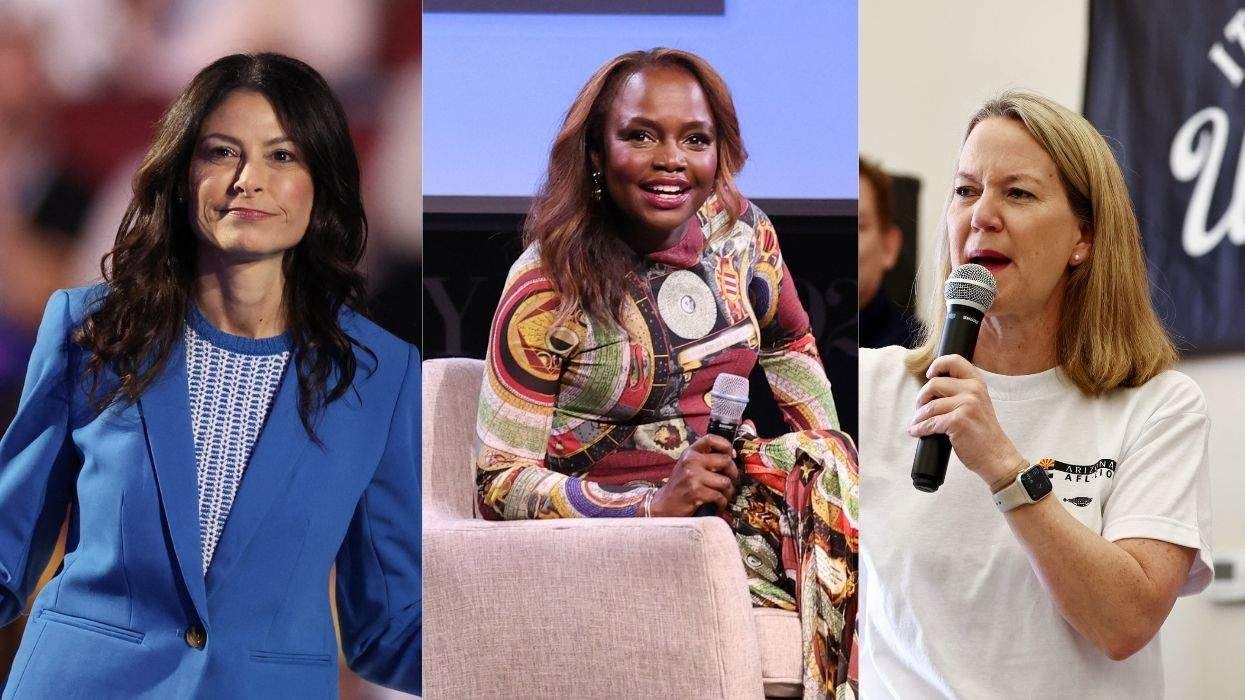Burger King made headlines last week across the country when it launched a "Proud Whopper" ad blitz, with a video that has since been viewed more than 4 million times. Burger King's LGBT pride, however, does not appear to extend far enough to its employees.
Human Rights Campaign deputy director of employee engagement Beck Bailey took to the HRC blog to point out some truly disappointing facts about Burger King and its track record on LGBT-related employment policies.
"As a transgender person who also works directly with employers to improve their policies and practices of workplace inclusion, I experienced mixed emotions with the Burger King ad," wrote Bailey. "Burger King has a score of 55 on the HRC Foundation's Corporate Equality Index (CEI) -- a score that reflects, among other things, a lack of employment protections on the basis of gender identity as well as a lack of base level health care coverage for transgender employees."
Bailey goes on to note that other fast food chains, including Yum! brands (including KFC, Taco Bell, Pizza Hut, Long John Silvers, and others) and McDonald's, have outscored Burger King on the CEI, all including gender identity in their companywide nondiscrimination policies.
Autostraddle editor-in-chief, CEO, and CFO Riese Bernard penned her own op-ed, declaring, "Burger King's 'Proud Whopper' Isn't Anything for Gays to Be Proud Of."
"The video made me think of Burger King's 2008 'Whopper Virgin' campaign, which also used 'underprivileged' (by colonialist standards) people to push its product, albeit in a far more exploitative fashion than we're seeing with this," wrote Bernard. "The commercial asked rural Romanian farmers, Thai villagers, and residents of Greenland's icy tundra who'd never had a hamburger before to try a Big Mac and a Whopper and declare a favorite. At the time, Brian Morrissey of Adfreak declared the ads 'embarrassing and emblematic of how ignorant Americans still seem to the rest of the world.'"
"Regardless, even the 'we are all the same inside' concept itself feels poorly conceived," Bernard later says. "We shouldn't have to prove that we're 'all the same inside' in order to obtain equal rights and respect. Instead we should all learn to value that even people who are different from us are worthy of humane treatment. Also, do you really wanna think about what's inside a Whopper? If one adds fries to that calorically-dense sandwich, one could exceed one's entire daily allotment of fat and saturated fat in a single sitting while consuming almost nothing of nutritional value!"
So in Burger King's case, it seems as though the company might not exactly be putting their money where their mouth is in terms of actually having "LGBT pride," insofar as treating employees with equality and respect is concerned.
On the following pages, let's see how some other companies who have dipped their toes into marketing directed to LGBT consumers line up.
Amazon.com
Last year Amazon released "Husbands," a commercial promoting its Kindle Paperwhite e-reader. The premise, essentially, is a man and a woman sit next to each other at the beach. The man, struggling to read the reflective screen of his iPad, turns to the woman next to him and asks about her new Kindle Paperwhite.
"We should celebrate," the man says after ordering a Paperwhite of his own.
"My husband's bringing me a drink right now," the woman replies.
"So is mine," the man says as the two look behind them to see a pair of waving men who are, presumably, their husbands.
Some declared the ad to be an endorsement of marriage equality, while others asked whether the payoff -- that the man turned out to be gay -- felt contrived and underwhelming. As for Amazon, as a company, however, it seems to generally get it right, scoring a 90 on this year's CEI, losing 10 points for not offering transgender-inclusive health care to its employees.
Allstate
Allstate made a big splash this year with its massive print, digital, and out-of-home advertising offering. Additionally, it launched "Safe in My Hands," a video spot that will melt even the coldest and most cynical of hearts (even if the whole "giant hand" angle is a bit reminiscent of the odd-yet-awesome Michel Gondry-directed video for Foo Fighters' "Everlong").
As a company, however, Allstate falls a bit short in terms of embracing its LGBT employees.
According to HRC's CEI -- which gave Allstate a rating of 85 -- the company does not offer full benefits to same-sex couples in states that don't have marriage equality. Additionally, the company's employee health insurance excludes hormone therapy, lab work, and transition-related surgical procedures for transgender employees. Odd that a company that sells insurance wouldn't offer inclusive insurance?
Expedia
In 2012 travel booking outlet Expedia launched an ad featuring a lesbian couple getting married. The tearjerking ad enraged antigay conservative organizations, but touched the hearts of many other viewers.
But how does Expedia measure up?
Expedia finds itself lacking when it comes to transgender employees. According to HRC -- which gave Expedia a 90 on the CEI -- the company does not yet have gender diversity training or guidelines set up for transitioning employees. And while the company's insurance does cover hormone replacement therapy, it excludes gender dysphoria-based mental health counseling, medical visits, and transition-related surgeries.
The Ones That Got It Right
American Airlines, Marriott, Coca-Cola, Nike, General Mills, Hilton, Google, AT&T, and numerous other organizations have received 100 ratings from HRC on the CEI. These companies have all also engaged in LGBT-centric marketing of their own.
Does this mean these companies are perfect? Absolutely not. Just earlier this year, an AT&T employee in Texas filed a complaint after claiming that he was fired after coming out as transgender.
In other words, policies are great, and advertising campaigns are great, but actions should follow.
PARKER MARIE MOLLOY is the founder of Park That Car and works as a freelance writer. She has contributed writing to Rolling Stone, Salon, The Huffington Post, and Talking Points Memo as well as The Advocate. Follow her on Twitter @ParkerMolloy.




































































Charlie Kirk DID say stoning gay people was the 'perfect law' — and these other heinous quotes